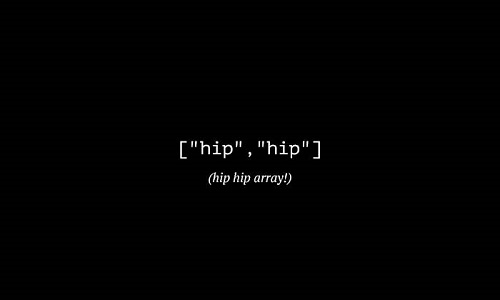Coding with Friends
Working on the pre-work for Flatiron School was a lonely experience. Working from home to begin a learning a new skill was something I had done many times before. However this time I felt like I had so many more questions and frustrations with the process. Sure, I could ask questions through the Learn website. This was sometimes helpful and also began to connect me with my classmates, but it was slightly intimidating to do so. I needed to sort out what those questions even were, then how to word them so that someone else would understand. I think I ended up only asking 2 questions through the entire process.
All this changed once we got into the classroom. That is when I discovered the power learning together can have. For even the smallest question or confusion I could suddenly turn to the person next to me and say "do you get this?' Every time, this was met with either "Yes, here's what you're not seeing" or "No, lets figure it out together." The learning process instatnly became collaborative.
"Students learn a great deal by explaining their ideas to others and by participating in activities in which they can learn from their peers. They develop skills in organizing and planning learning activities, working collaboratively with others, giving and receiving feedback and evaluating their own learning." - From - Peer Learning in Higher Education: Learning From & With Each Other
There have been several studies evaluating the effectiveness of learning with others who are at the same level, as well as at varying levels of learning. Each style was found to be valuable in its own way. At Flatiron school I have also found this to be true. When approaching a new subject along side someone who is also unfamiliar with it, we each see the information in different ways and then work together to understand how both the perspectives are valid. When working with someone who is a peer but has already mastered the subject I can trust that their perspective on the subject works to provide the desired results.
"The results of this study also suggest that peer-assisted learning increases confidence; reduce anxiety and stress and effect on development of learner’s future responsibilities." - From - Evaluation of the efficacy of peer-learning method in nutrition students of Shiraz University of Medical Sciences
A phrase I have heard many times since classes began is "by teaching you, I solidified the concept for myself." This is a technique used often in education. By teaching others, you teach yourself. Often when working to find a way of demonstrating or explaining an concept, just the act of figuring out how to do that will force you to re-examine the material and you gain a deeper understanding of it.
So we know that peer learning works. However, we cant all be so lucky as I am right now to be surrounded by others learning with me. What do we do when that happens? how can I learn anything once school is over? Or if I'm working on material at home alone?
Thats were the magic of Rubber Duck Debugging comes in!
Sometimes, I will ask someone a question and just in the process of asking and explaining my problem I discover the solution. The Rubber Duck method is based on this. A programmer will explain the code and an issue, out loud, to a duck. By explaining what the code is supposed to do and then observing what it actually does, the divide can be seen more clearly and the problem is found. Ultimately they are just explaining the issue back to themselves, but it works!
Sometimes your mind can become so enveloped in the code that you cant see the big picture. The Rubber Duck method helps you to pull back the perspective.
By combining these two methods of learning, peer and Rubber Duck, I believe the process is made far easier as well as more effective.
Happy learning!
Peer Learning in Higher Education: Learning From & With Each Other, edited by David Boud, Ruth Cohen & Jane Sampson. Published by Kogan Page Limited 120 Pentonville Road, London N1 9JN, UK and Stylus Publishing Inc. 22883 Quicksilver Drive Sterling, VA 20166-2012, USA. http://www.styluspub.com/ Copyright © David Boud, Ruth Cohen, Jane Sampson and individual contributors, 2002.
MOHAMMAD REZA DEHGHANI, MITRA AMINI, JAVAD KOJURI, PARISA NABEIEI
J Adv Med Educ Prof. 2014 Apr; 2(2): 71–76.





